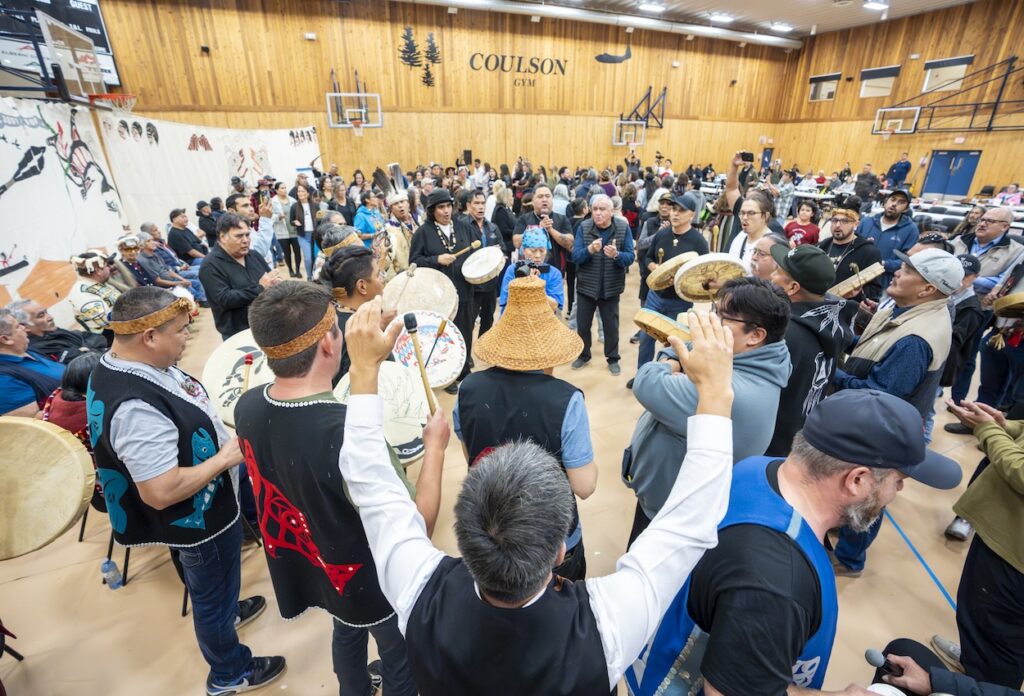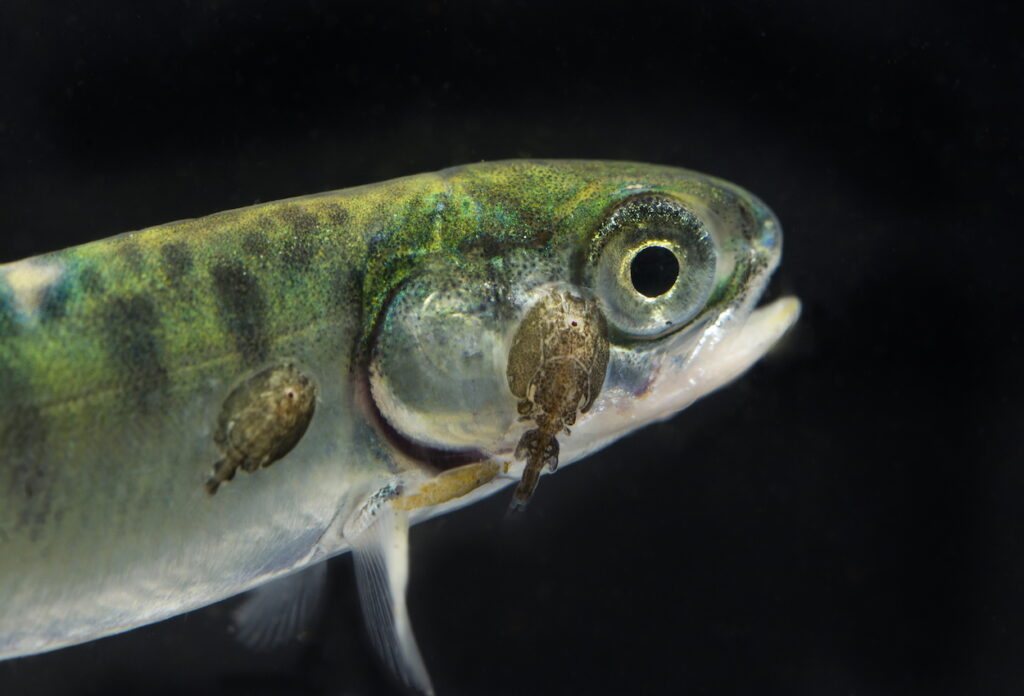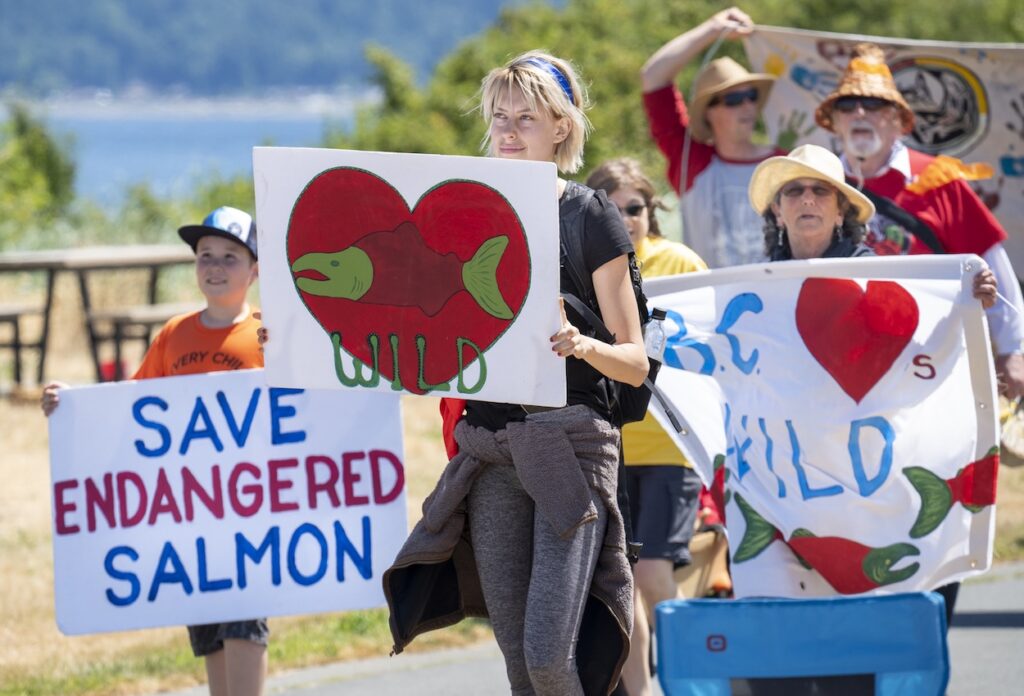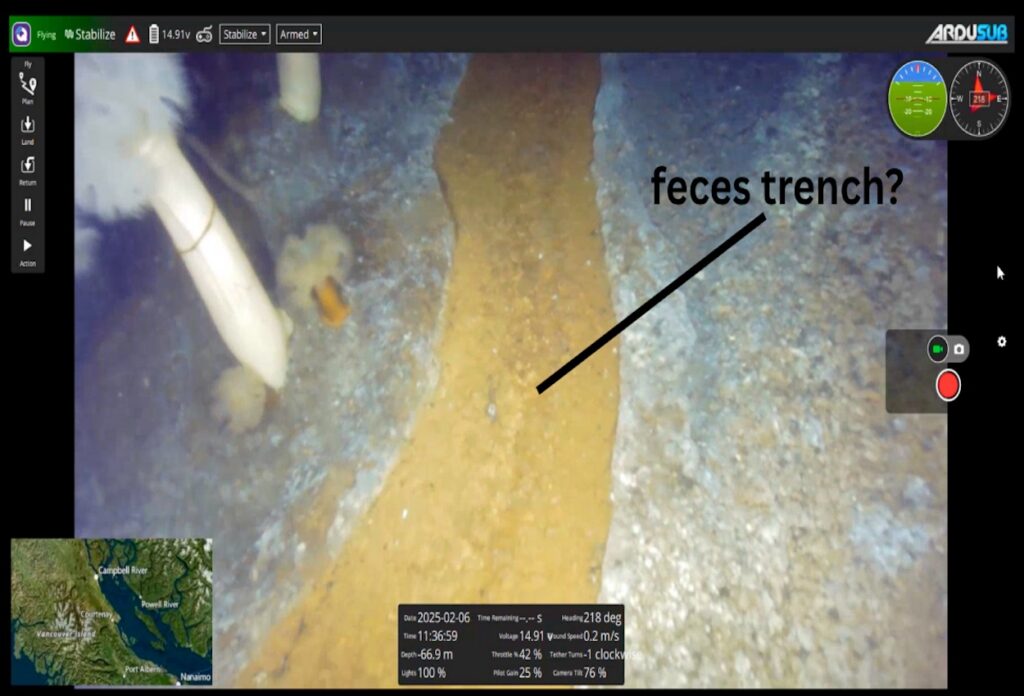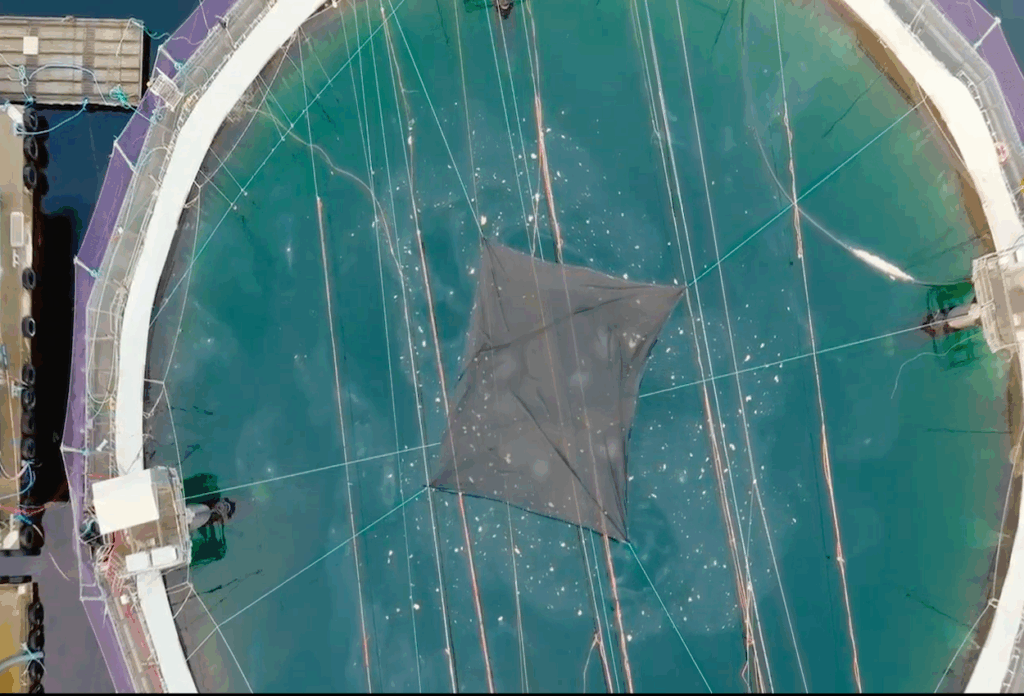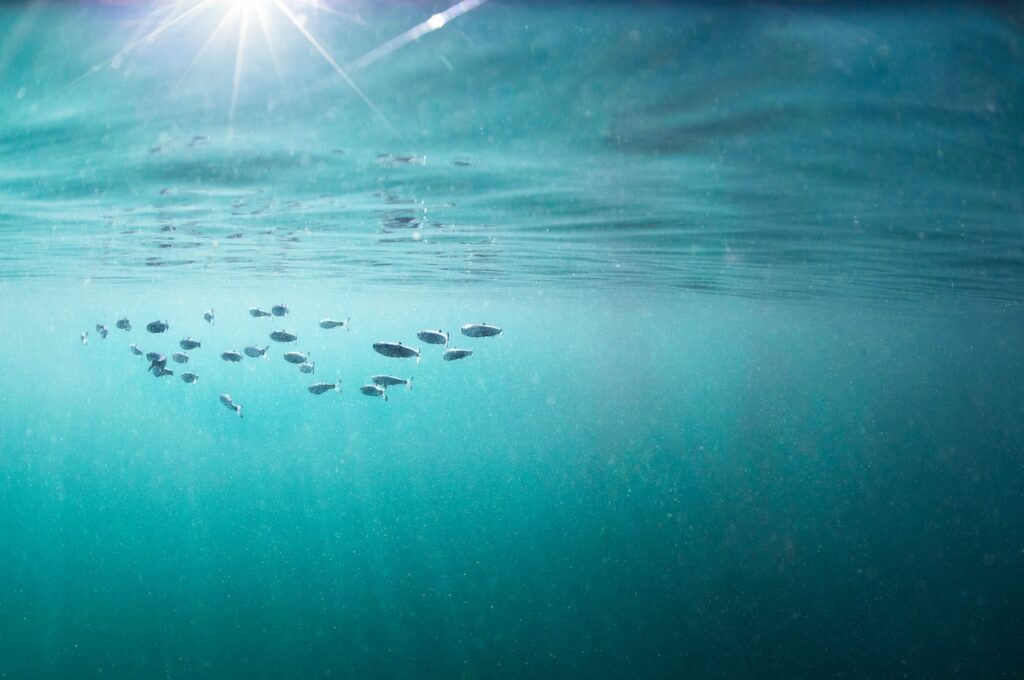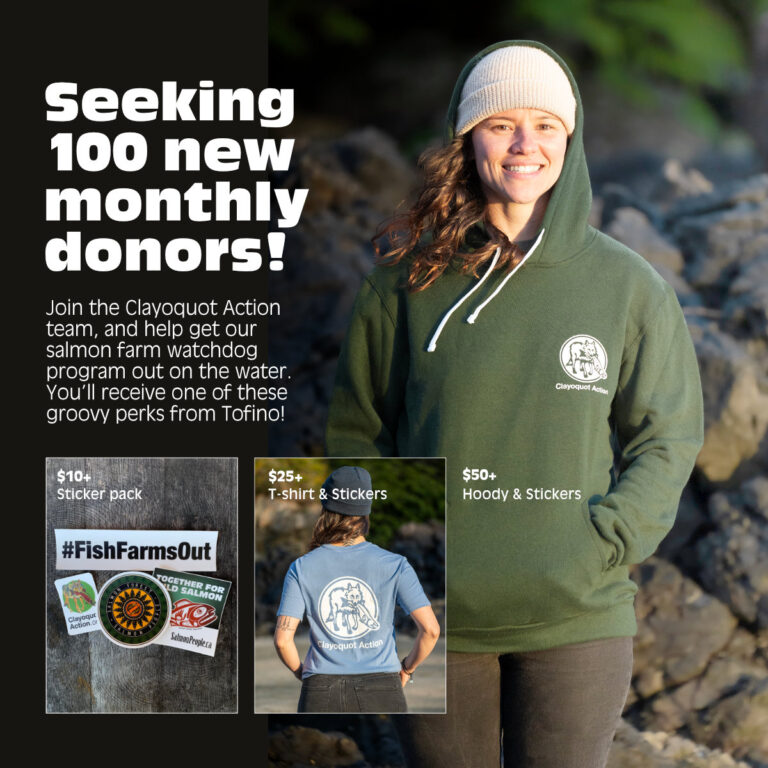Wild salmon numbers in British Columbia are at all-time historic lows. It is clear from emerging independent science that salmon farms are the culprit. Fortunately, there is momentum building to ban fish farms from BC waters to protect wild salmon!
17 farms banned in Broughton Archipelago
On March 7th, the ‘Namgis, Kwikwasut’inuxw Haxwa’mis and Mamalilikulla First Nations (The Broughton First Nations) announced they do not consent to the continued operation of any fish farm in The Broughton Archipelago. Ten fish farms in the region have already closed, and now the Nations have decided on the fate on Cermaq and Mowi’s seven remaining fish farms.
Their media release stated: “When making our decisions, we considered our sacred responsibilities to past, present, and future generations to protect the lands, waters and resources of our Territories. Our laws, customs, and traditions require us to act in a precautionary manner, to respect, and protect our marine Territories and way of life. We, the Broughton First Nations have long held concerns about the locations and operations of fish farms in the Broughton Archipelago, especially in relation to the threats facing wild salmon.”
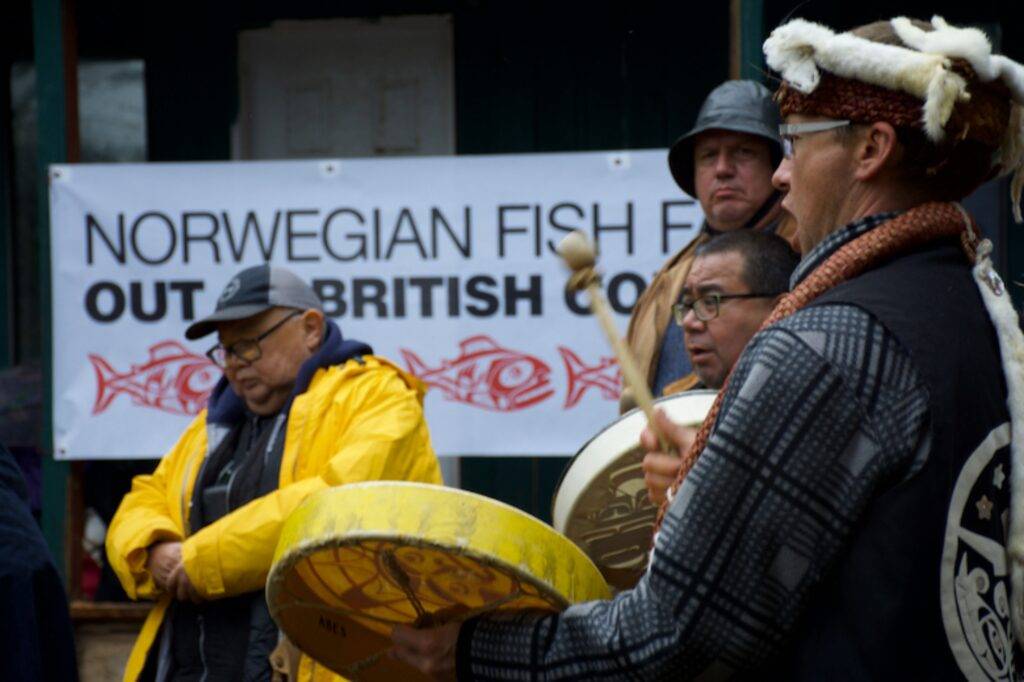
15 farms banned in Discovery Islands
In February, federal Fisheries Minister Joyce Murray made a courageous decision to cancel fifteen salmon farm licences in the Discovery Island. This is a step towards keeping the promise made by the Liberal party during Canada’s 2019 election, “to develop a responsible plan to transition from open-net pen salmon farming in coastal waters to closed containment systems by 2025.”
It was clear from her words that Fisheries Minister Joyce Murray understands the situation: “My goal is the protection and restoration of wild salmon.…transition away from open net pen salmon aquaculture is one of the tools that we have to protect wild salmon…when it comes to protecting and restoring BC’s wild salmon failure is just not an option…the pens have a lot of fish in them and that amplifies pathogens and parasites…recent science has shown impacts…when there is real concern about cumulative effects, and this being one that we can actually manage, the Fisheries Act actually compels me to take a precautionary approach.”
The Discovery Island decision stemmed from Recommendation 19, made by the Cohen Commission back in 2012: “On September 30, 2020, the minister of fisheries and oceans should prohibit net-pen salmon farming in the Discovery Islands (fish health sub-zone 3-2) unless he or she is satisfied that such farms pose at most a minimal risk of serious harm to the health of migrating Fraser River sockeye salmon.”
Studies show harm from fish farms
Of course, DFO did assemble a series of risk assessments which showed ‘minimal risk’ of serious harm. But those assessments failed to look at sea lice; nor did they look at cumulative impacts of combinations of pathogens. Nonetheless, the Minister of the day, Bernadette Jordan, did make a decision in 2020 to remove the Discovery Island farms with support of First Nations in the region.
That decision was challenged in court. The judge didn’t question the validity of the decision; merely that it was ‘procedurally unfair’. Meanwhile DFO released a sea lice report this February, showing minimal risk (of serious harm). That report was slammed by a group of 16 independent scientists. They argued that the data had been cooked—that in fact, the study actually does show risk of harm to wild salmon from sea lice on salmon farms. They have requested the raw data in order to run their own analysis. To date, DFO has not released the raw data…and the Minister cancelled the 15 fish farms.
shishalh nation and Washington State ban fish farms
The decision to remove salmon farms from the Broughton and Discovery Islands follows hot on the heels of two important announcements in November of 2022.
First, the shishalh nation sat down with Grieg Seafoods, and asked the company to leave their territories. Chief (hiwus) Warren Paull said “Protecting this precious resource for future generations has always been our priority. Removal of the farms is one step in protecting the wild salmon”.
Then in November, Washington’s Commissioner of Public Lands Hilary Franz made history when she prohibited commercial net pen aquaculture in Washington state marine waters. This was the outcome of an incident in 2017, when king tides destroyed a fish farm near Seattle.
The Washington decision leaves British Columbia as the only jurisdiction on the west coast of North America which allows salmon farms in the water. Three quarters of British Columbians want fish farms out of the ocean—now! One hundred and two First Nations want the farms out. The science is clear.
The Fisheries Minister will announce her plan to remove salmon farms this June. Take a moment to email Minister Murray today—make sure she hears your views!
Dan Lewis is Executive Director of Clayoquot Action.
Feature photo of lice free wild salmon in Discovery Islands, 2022 by Tavish Campbell.
